Anyone who has lived with their adoption experience over the past 60 to 70 years, whether as a mother, father or as an adopted person, will know how difficult it’s been to find a health professional who understood the challenges of living with an adoption legacy or who could offer an appropriate support therapy.
After many decades of struggle on this front it is now encouraging to note that the Australian Psychological Society (APS) has developed a series of online training courses for health practitioners who deal with clients affected by adoption. The short courses provide historical context, frameworks and principles to guide practitioners in their clinical work.
Although targeting clientele from the era of ‘forced adoption’, as this was the funding base, the course content remains useful for practitioners when assisting people who live with their adoption regardless of its timing or origin. This is important from the adopted person’s perspective as adoption does not discriminate re its impacts and lasting effects. For example, at some, or multiple points in an adopted person’s life they will have to deal openly and honestly with their first loss and separation and the effects this has on them as an individual, their identity and their relationships.
The APS is currently offering three, self-paced, online courses free to: APS members; psychologists; psychiatrists; social workers; mental health nurses; occupational therapists, GPs and Aboriginal and Torres Strait Islander health workers.
The course combination consists of a short one hour overview to understand the context of past adoption policies and practices and an eight hour and two hour course for mental health professionals and GPs respectively about working with people affected by forced adoption.
In addition a series of free webinars are been offered over the next year.
The first of these, which I joined along with over 150 participants in late April, focussed on the topic Understanding forced adoption: An introduction for health professionals. It was facilitated by psychologist Dr. Lyn O’Grady who ably guided a three member panel consisting of:
- Adj. Professor Darryl Higgins from Melbourne University and previously from the Australian Institute of Family Studies where he was deeply involved in research of forced adoption;
- Dr Jenny Conrick, social worker and academic from Monash University; and
- Dr Trevor Jordan, President of Jigsaw Qld, ethicist and an adopted person who has considerable knowledge and experience in providing support services for people affected by adoption.
This team focussed on a fictional case study of a mental health practitioner who was new to her role in supporting clients affected by forced adoption with the panel highlighting the importance of listening to and thinking from the client’s perspective; way’s of opening a discussion around adoption; being mindful of the terms and language used; the trauma involved in adoption e.g. separation, loss and grief; multiple sensitivities, including maybe being told for the first time, as an adult, that you are adopted; the role of multiple families and for the therapist, their own self-care.
The first webinar is available at the APS site.
The calendar for future webinars as scheduled by the APS is:
- 29 June 2016 at 7.00pm. Working effectively with people affected by forced adoption – for GPs. A three member panel will consist of:
Dr Cate Howell, General Practitioner
Dr Maurice Eisenbruch, Psychiatrist
Dr John Groth, Psychologist
To register: To register for the second webinar see APS site.
- August 2016 – Best practice principles in forced adoption work
- October 2016 – The ‘ripple effects’ of forced adoption
- November 2016 – Complex trauma and disenfranchised grief in the context of forced adoption
- February 2017 – Thinking about identity in the context of forced adoption
- April 2017 – Providing support through search, contact and reunion
- May 2017 – Working with complex issues associated with forced adoption
Should you wish to be kept informed about these Webinars I would recommend subscribing to the APS.
Adopted people who live with their adoption on a daily basis know that adoption is not a one-off event that happens early in life. Any harmful effects are not neatly dissolved by entry into a new family. Many psychological and emotional scars remain and do need to be addressed at various stages during an adopted person’s life to prevent them spiralling out of control or manifesting into various forms of self-neglect or self-harm. The support of a trained professional is often needed in these situations. Consequently, the APS online courses and webinars are a welcome initiative to raise awareness and provide useful frameworks for health professionals in their clinical work when dealing with people affected by adoption.
From this point on should you be a person with an adoption legacy who is seeking the support of a health professional in Australia one of the first questions you need to ask them is whether they have completed the APS online adoption courses. If they have not, reconsider your options.
Thomas Graham
